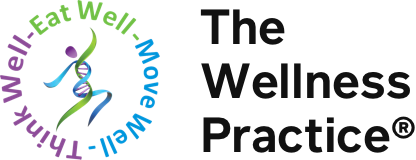Clarification between "naturally occurring" and "naturally derived". More and more companies are seeking to capitalize on the demand for natural products and they have been manipulating the labeling language as part of their marketing methods. Please read your product labels carefully, especially if you see the word "NATURAL" boldly highlighted. Naturally occurring is defined as a natural product that is delivered in a natural form. Naturally derived means some ingredients derived from nature have been used to artificially create a product that is delivered in an unnatural form.
An olive, whether delivered whole or ground up and dried, would be classified as naturally occurring. Olive oil that is extracted from an olive and kept in its natural form would be classified as naturally occurring olive oil.
Criteria upon which to make Health and Wellness Decisions
This is a list of criteria that must be considered in order to make sound decisions. The list is in order of importance; meaning if there are conflicting sides to an argument the side that uses the highest criteria level of evidence is the one you should trust.
1. (HIGHEST LEVEL) The study of Nature and Natural Ecosystems.
2. The study of Epigenetics; the study of how the environment determines which genes we will express and whether we stay well or become sick.
3. The specific study of the human species - the study of the lifestyle choices and environments of the healthiest human beings in history (this includes, but is not limited to, the study of Anthropology).
4. (LOWEST LEVEL) The study of the available peer-reviewed scientific literature - basic physiology first, clinical trials second, case studies and anecdotes third.
* In order to use ANY information from a clinical trial you MUST understand the concepts of validity, reliability, and have an understanding of research methodology. You MUST be able to ascertain whether the study’s conclusions are valid based on the question posed and the methodology used. Clinical trials are often the LEAST reliable in terms of honest reporting of results. This is often because the trials are supported and/or conducted by the very groups that stand to benefit from positive results of the trial.
* Do you find it surprising that clinical trials are so low on the list, yet seem to be the form of study used most often to support a given intervention? This is the faulty legacy of medical research and when it is applied to the health and wellness field the result is the current state of confusion. More importantly, it often results in the public being dangerously misled, taken advantage of and kept in a state of less than ideal health.
Hierarchy of Questions to Determine Validity of Supplement Claims/Requirements
Use these questions, in order, to determine if you can ethically, logically and comfortably recommend a certain supplement. These questions are rarely asked yet the answers provide the ultimate guide.
1. Is it in the form found in nature or biochemically altered by humans?
* We have NEVER improved on nature. We have NEVER biochemically altered a food and made it better for human consumption - EVER. Look for the product to be in the natural form (review September newsletter - Naturally Occurring versus Naturally Derived).
2. The ultimate test is to ask - "Does this mimic what the healthiest humans (our hunter-gatherer ancestors) consumed?"
* If the product is delivered in a formula or in a form that is NOT FOUND IN NATURE and thus NEVER FOUND IN THE DIETS OF HEALTHY HUMANS then how can it be superior and more genetically compatible than a natural product?
3. Is the product essential?
* In other words, how likely is it that humans (myself and my patients included) are deficient in it?
4. Can we get the product with a reasonable dietary alteration?
* If so, then it is ALWAYS better to make the dietary alteration and consume the product in its natural form as food. This is the most cost-effective means AND it ensures that you get EVERY required co-factor that would be required for the product to exert its most beneficial effect.
5. Is there a BODY of RESEARCH showing superiority of the product versus other products?
* This is especially important if the product is not naturally occurring - if it has been altered by humans and claimed to be "better". Are the claims supported by VALID clinical trials which make FAIR comparisons between the product and other products? Usually the product is produced in a reverse process. A study comes out suggesting that a certain amount of a certain product had a beneficial effect for a certain ailment then some company produces a product modeled after that study and claims superiority. What is rarely, if ever done is the direct and fair comparison between the so-called superior product and others in its class. Furthermore the claim of superiority is rarely if ever based on the criteria of producing greater health and function - it is virtually always based on one or two measured variables that are carefully chosen to match the products effects.
6. Does the product combine two or more ingredients and claim superiority?
* If the product claims to be "better" because of any added ingredient or biochemical formula, ask yourself if these ingredients would have been found together in nature and if our healthy ancestors consumed these things together. Further, ask if there is a BODY of EVIDENCE showing great results without these "improvements." Is there a BODY of EVIDENCE from clinical trials to show superior results FOR HEALTH (not any specific symptom) with the added ingredient(s)?
THE FINAL WORD: These are the rules we follow at Innate Choice®. We research what essential nutrients industrialized humans are deficient in and then we research the best way to deliver them IN THE MOST NATURALLY OCCURRING FORM possible. We don’t ask what therapy can work to treat which symptom – we ask what supplements valid scientific research shows are required by EVERYBODY – EVERYDAY – FOR LIFE™! This is how we have always done things and how we always will!



